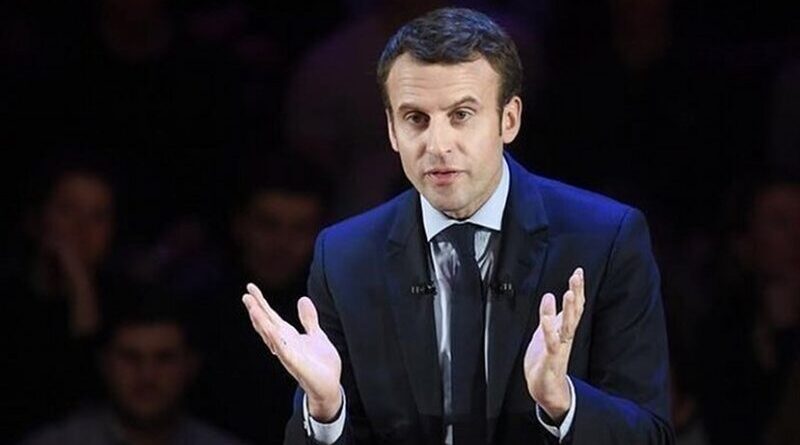Macron’s Domestic Crisis Comes At Bad Time For France – Analysis
The yellow vest or “gilet jaune” is symbolic following weeks of widespread protests in France, with thousands taking to the streets while wearing the vests to protest fuel price hikes and low wages. The intensity of the protests has cost France $11 billion and forced President Emmanuel Macron to make concessions by scrapping price hikes and promising to raise the minimum wage. The move is probably the first of many capitulations.
The background is relevant. As part of his environmental policy strategy, Macron announced a green tax on fuel last month to come into effect on Jan. 1. The move set off nearly a month of protests around France. The Interior Ministry estimates 136,000 protesters turned out across the country over the past weekend, in addition to 280,000 in previous weeks. The protests started in the French provinces but spread to Paris, where demonstrations turned into riots and scenes of violent civil unrest occurred on the Avenue des Champs Elysees.
The yellow vest protesters were people from rural areas who have to drive long distances as part of their daily life. They said they couldn’t afford the hike in fuel prices. Protests appeared in pockets around France to denounce Macron’s green tax, and then quickly grew into a larger movement that includes members of the working and middle classes, who are expressing their frustration about slipping standards of living. They say their incomes are too high to qualify for social welfare benefits but too low to make ends meet. The movement has no official leadership and was organized initially through social media groups.
The protesters focus on Macron as the source of their problems. Along with his early reforms to loosen labor laws and cut France’s famous wealth tax, the fuel tax reinforced protesters’ image of him as a president for the rich. For some, Macron represents the French elite and thus the dividing line between the elite and the workers is now fully exposed.
There is no doubt that the yellow vest movement is not weakening. It will therefore continue to take root and highlight the gap between the haves and the have-nots, between urban and rural divides. The EU ultimately faces a test, as social and political challenges continue to emerge and challenge continental unity.
Last weekend showed that the level of violence in France had gone up several degrees. The number of arrests exceeded 1,300. Investigations are being carried out in order to understand and pinpoint the movement in terms of its leadership. People have been injured by the police. The symbol of law enforcement used by the gendarmerie in Paris will remain. Importantly, the rioting evoked comparisons with the violence of 1968.
In 1968, a battle between 6,000 student demonstrators and 1,500 gendarmes escalated within days to a civil dispute featuring 10 million French workers going on strike and bringing the economy to a virtual halt. The De Gaulle government was forced to hold new elections. Importantly, May 1968 is an important marker in modern French history between the balance of what may be called the “liberation and anarchy” and feeds into today’s discourse over the significance of the yellow vest movement. Today’s riots are different in that, in modern society, everything is filmed, including images showing high school students in Mantes-la-Jolie being rounded up by the police. The images tell an interesting story of where France is going as part of Europe.
Macron’s government has a road map that is between the framework of the EU and the euro. If Macron leaves this path, the impact on financial markets will be immediate. His government is listening to the markets and complying with the euro’s framework. Moreover, the French government will now need to move on to the introduction of proportional representation in the upcoming elections, while balancing the requirement to reduce the number of MPs and senators. Wrapped up in the political game are traditional issues of immigration and acculturation within French society that have fed into the yellow vest demonstrations, especially in terms of slogans and graffiti.
It is therefore more than likely that the movement will continue, as Macron has been damaged by the riots and their significance. Images of violence and continued resentment at a lack of change may mean that Macron is a “lame duck” at exactly the wrong time geopolitically. France is in the middle of several security and military operations throughout Africa and the Middle East and is intensely working on the Iran file, in addition to making heavy energy investments. Paris is also involved in important counter-terrorism operations. Domestic violence at home and a crisis of authority does not add up well for scoring major foreign policy points in the coming year.
Overall, France has entered a crisis period. This crisis will have social, political and institutional dimensions. But it may be more about the adverse effects on the EU framework, and in particular the euro, at this juncture. Macron, who was gesticulating earlier this year at the World Cup in Russia, is unlikely to enjoy that pose again in the future.

